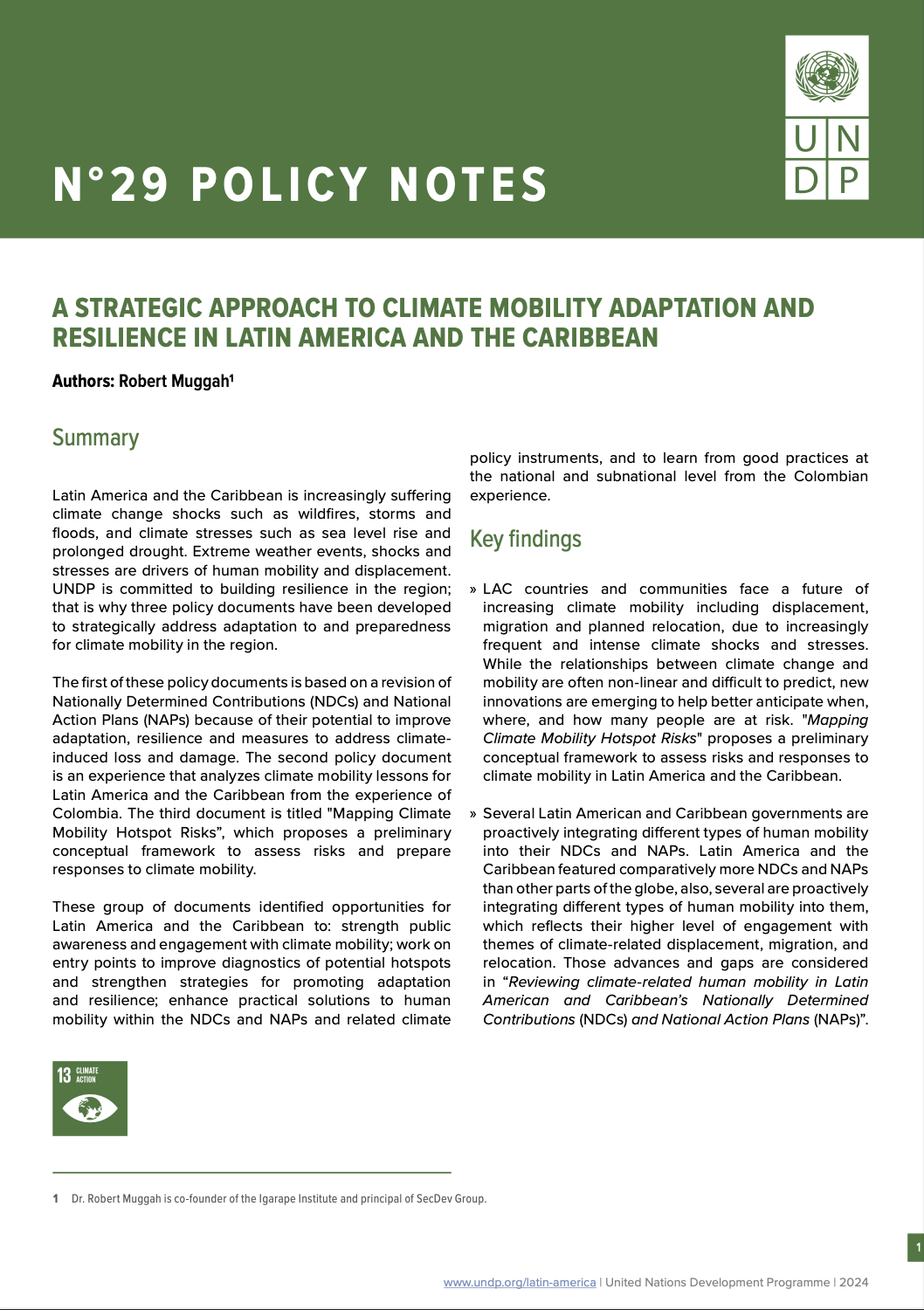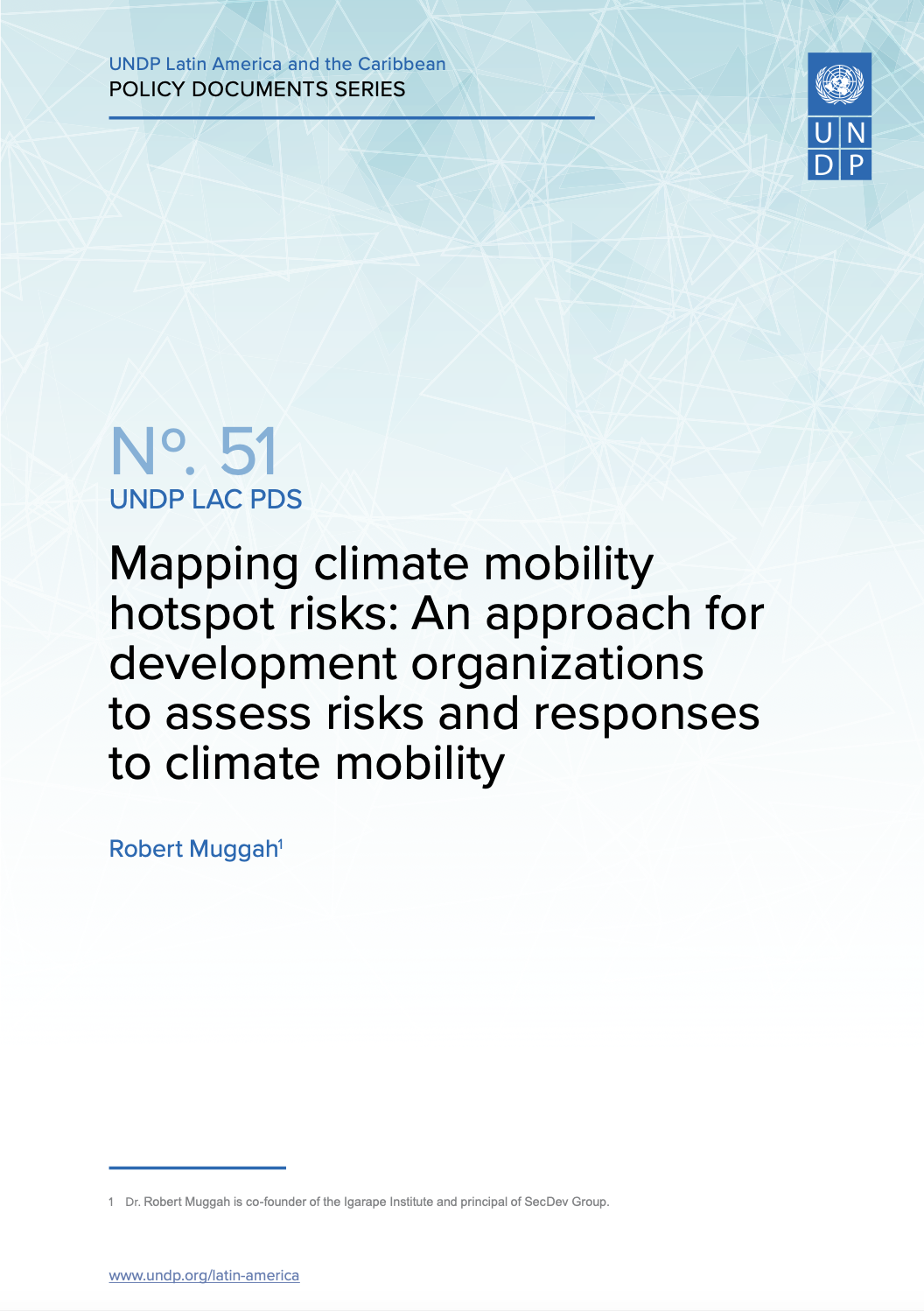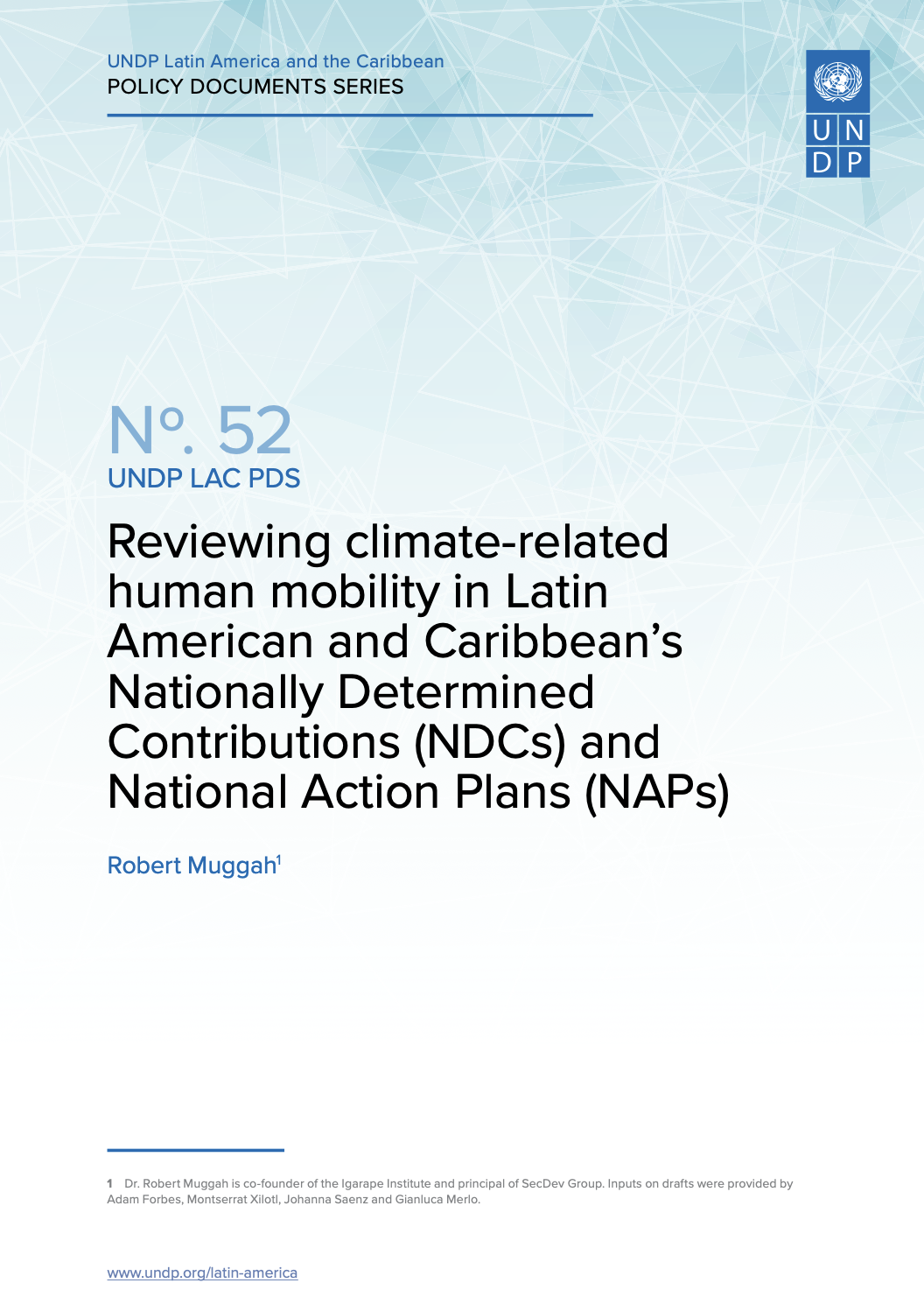A Strategic Approach to Climate Mobility Adaptation and Resilience in Latin America and the Caribbean

Latin America and the Caribbean (LAC) is increasingly suffering climate change shocks such as wildfires, storms and floods, and climate stresses, including sea level rise and prolonged drought. Extreme weather events, shocks and stresses are drivers of human mobility and displacement. UNDP is committed to building resilience in the region and developed three policy documents to strategically address adaptation to and preparedness for climate mobility in LAC.
The first of these policy documents is based on a revision of Nationally Determined Contributions (NDCs) and National Action Plans (NAPs) due to their potential to improve adaptation, resilience and measures to address climate-induced loss and damage.
The second policy document analyzes climate mobility lessons for Latin America and the Caribbean from the experience of Colombia.
The third document, titled "Mapping climate mobility hotspot risks”, proposes a preliminary conceptual framework to assess risks and prepare responses to climate mobility.
These group of documents identified opportunities for Latin America and the Caribbean, including:
- Strengthening public awareness and engagement with climate mobility.
- Working on entry points to improve diagnostics of potential hotspots and strengthening strategies for promoting adaptation and resilience.
- Enhancing practical solutions to human mobility within the NDCs and NAPs and related climate policy instruments.
- Learning from good practices at the national and subnational level in Colombia.
The policy note summarizes key findings from these studies and provides specific and strategic policy recommendations for LAC.
This document was published as part of a series of policy documents by UNDP Bureau for Latin America and the Caribbean.

